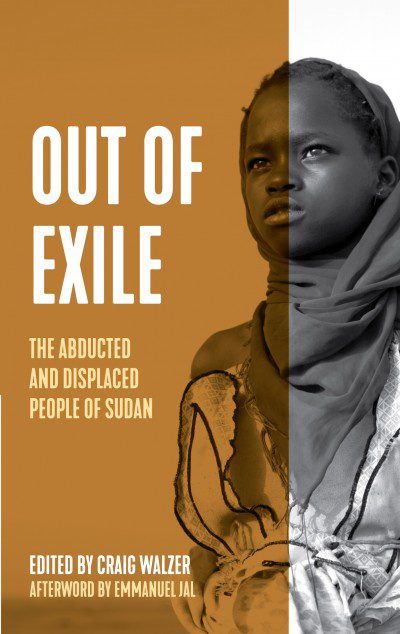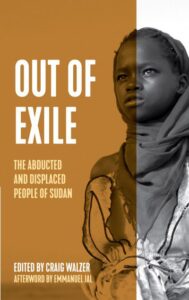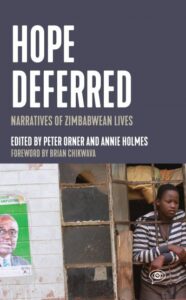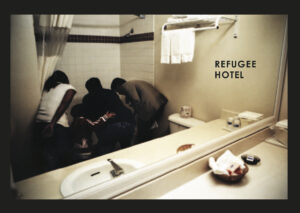The Voice of Witness book series amplifies the stories of people directly impacted by—and fighting against—injustice. We use an oral history methodology that combines ethics-driven practices, journalistic integrity, and an engaging, literary approach.
The books explore issues of inequity and human rights through the lens of personal narrative. Each project aims to disrupt harmful narratives by supporting historically marginalized or silenced communities to tell their own stories in their own words.
Book clubs are useful tools for engaging and interacting with these oral histories and the issues they highlight. Find our handout with guidance on planning and facilitating one here.
Use the questions below to start a book club for Out of Exile: Narratives From the Abducted and Displaced People of Sudan.

Discussion Questions:
- In his introduction to the book, editor Craig Walzer recounts an experience with a narrator named Mary who was critical about the positive change her story would bring about for the Sudanese people. She said, “I have heard these questions before, and nobody has come to our help. We have never been helped. They say money will go to building schools and hospitals. We have been told about this all the time, and nothing ever happens.” Walzer’s reply was, ultimately, “I’m sorry, I don’t know what to say.” What are some of the factors that may have influenced her response, as well as his inability to articulate a clear outcome?
- At the beginning of her story, Achol recounts witnessing the destruction of her village when she was three and being abducted for slavery when she was six. How did hearing this at the start of her narrative impact you? What does your reaction say about our struggle to, and the importance of, bearing witness to traumatic stories?
- How would you describe the main themes in Out of Exile (as well as Achol’s story) and what do they communicate about the people of South Sudan?
- Achol’s story is full of hardship and struggle. What are some of the sensory details from her narrative that make it possible for you to connect or empathize with her?
- Achol talks about being treated and sold like cattle, shouted at, and repeatedly reminded that she is abeeda, a slave. In what other ways did her captors attempt to de-humanize her, and what was her response to these attempts?
- Achol recounts how she was forbidden to speak her native language or practice any aspects of Dinka culture. She was also forced to learn Arabic and the Koran. What do you imagine was the impact of this on Achol and others in her situation?
- What role does religion play in the ongoing crisis in Sudan?
- Is the situation in South Sudan an “internal dispute,” or a crisis that the global community has a responsibility to respond to? What actions have been taken so far and what has their impact been?
- What challenges (internal and external) does an exiled person or refugee face?
- How many examples of “internally displaced” exiles or refugees within the United States can you think of? What do you know about these people or groups?



